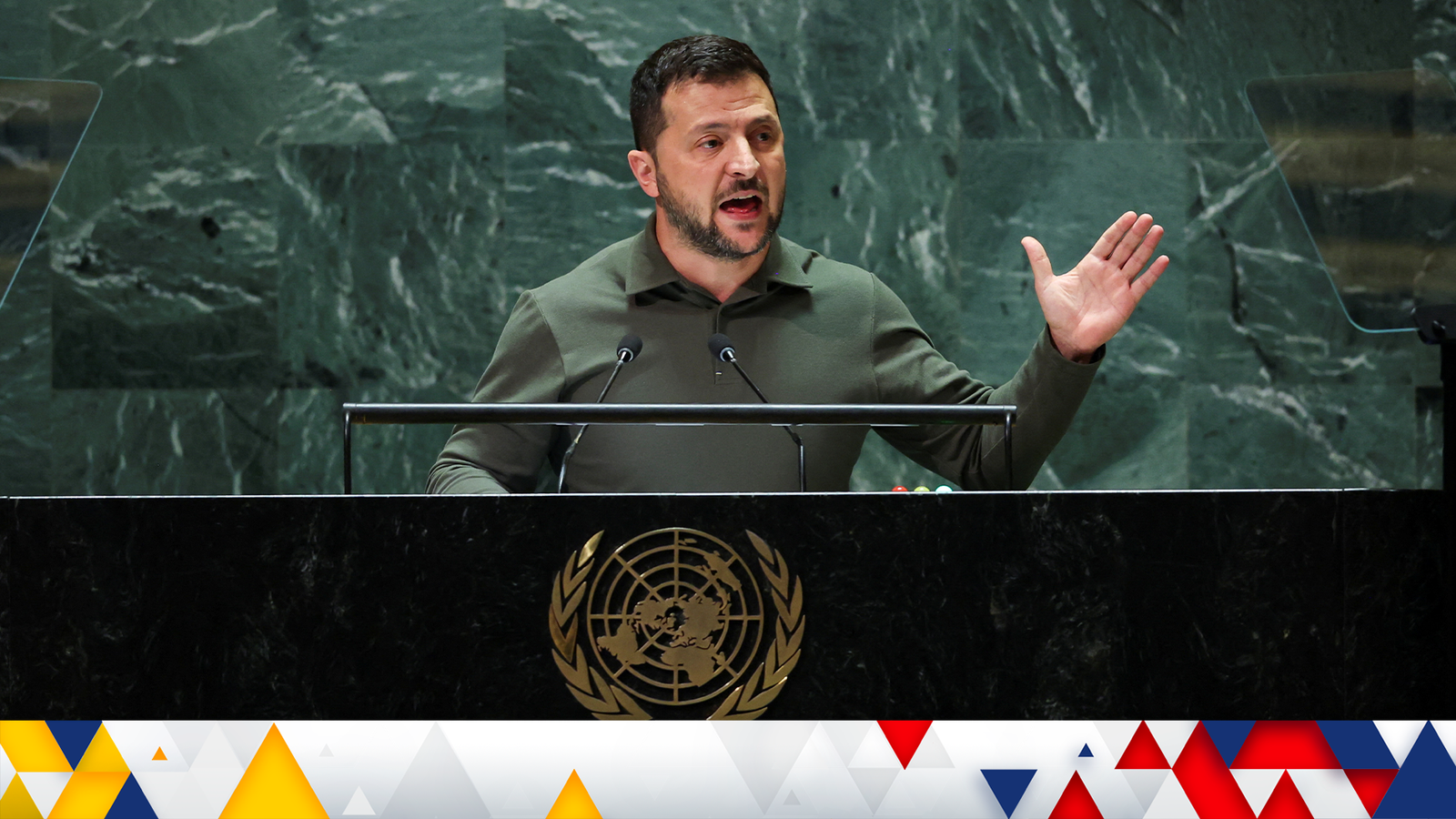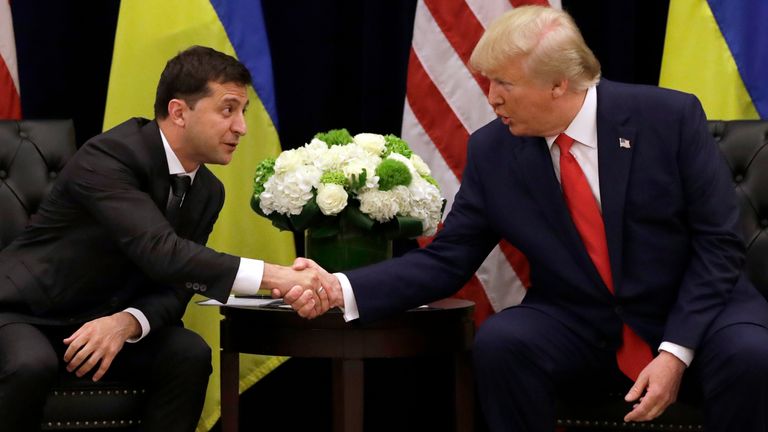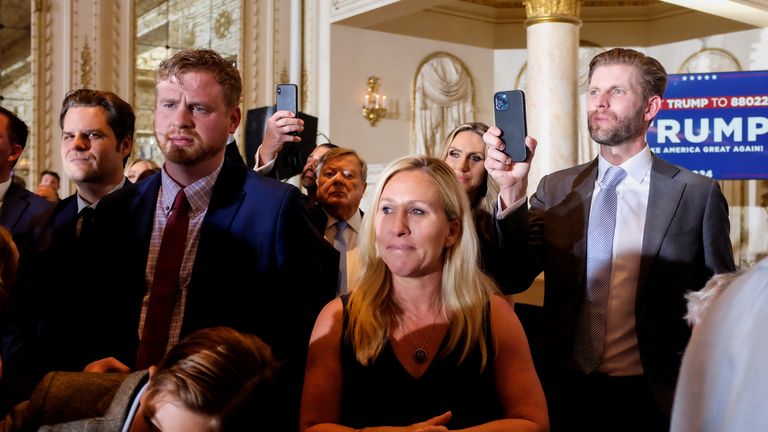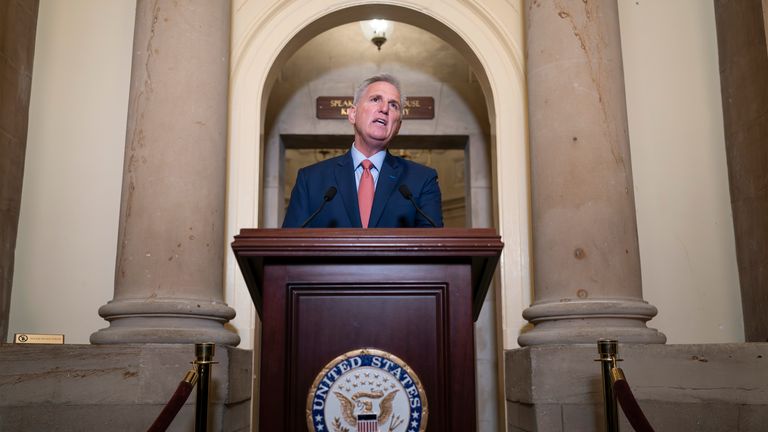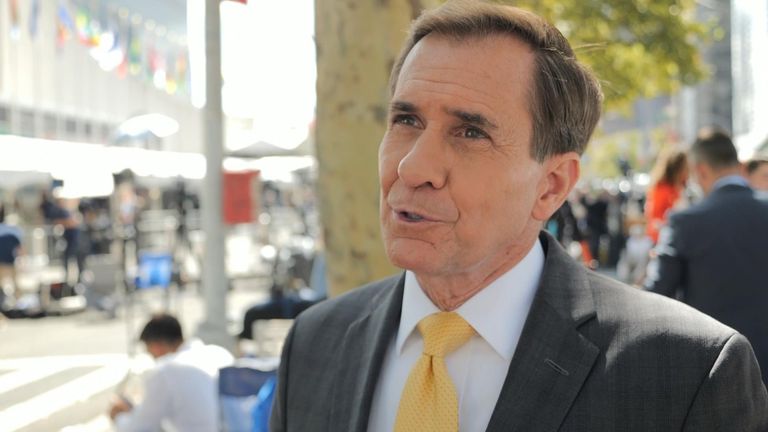
The Ukrainian president arrives in Washington DC today, the 548th day of the war, with a plea – “do not abandon us now”.
It is a sign of the times, if not a reflection of a shifting world order, that the weakest link in the Western alliance against Russian aggression right now seems to be the US’s Republican Party.
They hold the keys to unlocking continued critical funding, and President Zelenskyy knows his presence, his poise and his persuasion here today might mean everything.
And so the crux of his day in Washington will not be the White House, where he will see the president.
His focus will be Capitol Hill, and politicians who are members of a party once led by the likes of Ronald Reagan and the Bushes – national security hawks and stalwarts of Western ideals.
Transformed by Donald Trump, the Republican Party is no longer so much about projecting American principles of democracy and freedom through the might of American power.
While an old guard of Republicans still inhabits the corridors of the Senate, over in the House of Representatives, where the Republicans are the majority, there is an air of America-first isolationism.
Donald Trump is an enduring influence
Recent polling analysis by The New York Times characterises the Republican Party’s shift in stark terms.
In 2005, 53% of Republican politicians believed that America should be active abroad. This year, just 24% of them think the same.
The 2005 data came just after George W. Bush was re-elected. It was a few years after 9/11 at a time when America was engaged in wars in Iraq and Afghanistan.
Was it the futility of those wars that shifted a critical proportion of America’s political representatives?
Or was it the unquestionable power of Trumpian politics?
Probably both. The shadow of “forever wars” runs long. Donald Trump is an enduring influence.
The futile battles they supported in Iraq and Afghanistan didn’t have an existential feel to them in the way that this battle with Russia does.
That fuels both sides of the Ukraine argument – to defend harder, or to back off.
Both are choices that have consequences.
Ukraine war – follow live updates
Right-wing Republicans threaten shutdown
On Capitol Hill, it comes down to a particular group of Republicans on the right flank of the party.
People like Marjorie Taylor Greene, Matt Gaetz and others are Trumpian disruptors who have got much of the rest of the party, led by speaker Kevin McCarthy, wrapped around their fingers.
They are threatening to force a government shutdown next week if their deep opposition to Ukraine funding and other issues are not addressed.
Their cry is that President Biden and the Democrats are providing “blank cheques” for Ukraine and that there is no oversight.
Neither of these assertions are accurate.
To date, America has provided Ukraine with $101bn (£81bn) in security assistance packages.
This represents about $0.68 (£0.55) per American adult per day. It has also had a positive impact on American manufacturing.
The packages are monitored by a working group of more than 160 officials across 20 federal agencies.
From the political right, the Ukraine question is often presented as a zero-sum choice: “We have our own massive challenges, why are we trying to fix someone else’s? Why protect Ukraine’s border when we can’t protect our own?”
Immigration on the southern border is an unquestionable problem.
The old Republican Party would say: “We are America – we can do both.” The new one? Not so much.
Independence is at stake
White House officials still believe the congressional support will hold; that the leadership in both parties are behind Ukraine’s fight.
They know though that the counteroffensive they are fuelling needs decisive progress and that the perception of a rudderless “just send more weapons” approach has limits.
And so the White House maintains the language of persuasion.
The spokesperson for the president’s National Security Council said last night: “If you think that the cost of supporting Ukraine is high now, just ponder how exorbitantly higher it may be in blood and treasure if we just walk away.”
Admiral John Kirby added: “I actually think that the American people understand that what’s at stake here isn’t just the future of Ukraine… it is this idea of independence.
“It’s a founding ideal in this country, and we didn’t win our independence without foreign help either.”

